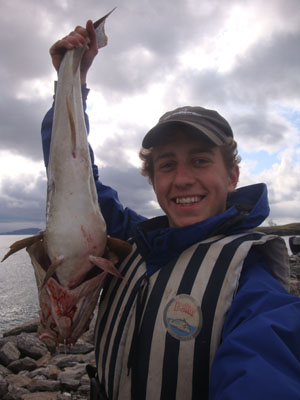In these times where paid work experience can be hard to find, and living in the city may be difficult without a job, why not take the option of seeking out work in the countryside? In this issue: have you ever considered farming?

Jeremy Judge had for most of his life definitely not considered farming. Being brought up in the very heart of London, a talented pupil going on to study architecture at a prestigious London university, Jeremy had no experience of farming, apart from occasional visits to his family cottage in Wales in his childhood. Still, after having taken the difficult decision to drop out of university to follow a different course, he had suddenly found himself without anything to do for six months. Wanting to get some perspective and needing to get away , a friend told him about the possibility of volunteering on a farm through wwoof – WorldWide Opportunities on Organic Farms. Jeremy took a chance, seeing the opportunity of acquiring an entirely different set of skills that he would otherwise not have learned had he stayed in London.
The organization put him in touch with a a couple on the Norwegian island of Handnesgarden. One day, the farmers discovered that a young Englishman had found his way to their doorstep, having made his way to their island by the Norwegian coastline and walked alone across the desolated landscape to find their traditional organic farm.
“I don’t think they thought I was really coming,” he says, smiling. “But they still took me in, put me in a cottage and gave me work.” Like Jeremy, being able to learn a different set of skills and to escape the hustle and bustle of the city is exactly what motivated WWOOF founder Sue Coppard to start the organisation in 1971. Having had experience with farm work on her uncle’s farm in the countryside in her childhood, Coppard found that as a grown-up, there were not many opportunities to escape the busy city life and her work in London. After having searched for farmers willing to accept unskilled labour for short periods of time, she was eventually offered weekend work on a farm just outside London, in return for board and lodging. Coppard’s idea that anyone could come and work on a farm for a weekend, once a week, or for weeks at a time, for example instead of taking a holiday or while waiting to find a paid job, quickly became a success beyond her wildest dreams. From the weekend trip in Britain in 1971, WWOOF expanded exponentially and today there are WWOOF hosts in 99 countries, with thousands of volunteers participating every year from all across the world.
People of all ages

Today, WWOOFers are all kinds of people of all ages. Some are people that long to live a basic hand-to-mouth lifestyle without having to worry about a payslip every month. Others are idealists who want to save the world and promote ecological farming. Yet many are people like Jeremy who primarily want a different experience and test their capabilities. But no matter which type of WWOOFer they are, all volunteers must be prepared for the hard work that awaits them: although the idea of escaping the city buzz and completely de-stressing away from the city life is appealing for most people, WWOOF is not simply a romantic holiday in a wooden cottage. Volunteers are expected to work a certain number of hours every week in order to earn their food and lodging. For Jeremy, the experience meant that he had to work on the farm from eight to four on the same term as the other two workers who lived on the farm as well as the Norwegian owners. Work included all kind of old fashioned farming tasks, from collecting hen and goose eggs for the self-cooked breakfast, to carrying cow dung. But despite the hard work during the week, every weekend Jeremy was free to discover the mysteries of the isolated Norwegian island.
“It’s been so long since I looked at this,” he says as he takes out an impressive sketchbook filled with drawings and short notes which he wrote during his stay. As the memories start to come back, he eagerly tells stories of exploring the nearby forest and mountains (“I was gone so long that the locals thought I’d disappeared for good!”), sleeping alone under the stars and setting up camp on a deserted cliff with nothing between him and the sea below.
Another advantage of WWOOFing is that you get to engage with communities you thought you’d never have anything to do with. “On the neighbouring island there were 50 inhabitants,” Jeremy explains. “And out of these, 10 enthusiasts had decided to buy instruments and to teach themselves how to play – so that they could have a proper brass band for entertainment. When I arrived, I told them that I play the horn. Since they had a spare instrument, I got to join their band and their rehearsals. When we performed on Constitution Day, they even performed God Save the Queen specially, since I was there!”
I proved to myself that I could be independent and live happily on my own.
Although there are stories of WWOOFers staying in touch with their hosts, the relationship between the volunteers and the farmers differs from placement to placement. Jeremy says that the relationship with his hosts was mostly a ‘work’ relationship – most days he returned to his cottage at the end of the working day. (“Well, apart from after we had finished the potato harvest, when we were all invited to the farmer’s office to celebrate by getting really drunk on vodka!”). And towards the end of his stay, his hosts helped him carve his own leather belt which he still wears today. But first and foremost, Jeremy’s reward was to see his own progress: “Towards the end of the eight weeks I was finally allowed to be alone on the farm, with main responsibility for the animals and crops. My aim when I arrived had been to get competent at the day-to-day running of a farm, and by the end of my stay I reached that goal. I proved to myself that I could be independent and live happily on my own. I loved learning about working closely with nature, being taught by experienced farmers. This project, as an educational escape from the city life that I had been brought up in, has allowed me to really appreciate the natural world.”





